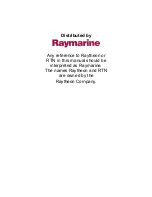
Wiring
Proline t-mass 65 PROFIBUS DP/PA
28
Hauser
Spurs
Please note the following:
• Length of spurs < 6.6 m (21.7 ft) (at max. 1.5 MBit/s)
• No spurs should be used for transmission rates >1.5 MBit/s. The line between the connector and
the bus driver is described as a spur. Experience has shown that you should proceed with caution
when configuring spurs. For this reason, you cannot presume that the sum of all spurs at
1.5 MBit/s may be 6.6 m (21.7 ft). This is affected greatly by the arrangement of the field devices.
Therefore, we recommend you do not use any spurs, if possible, at transmission rates
>1.5 MBit/s.
• If you cannot avoid using spurs, then they may not include any bus terminators.
Bus termination
It is important to terminate the RS485 line correctly at the start and end of the bus segment since
impedance mismatch results in reflections on the line which can cause faulty communication
45.
Further information
General information and further notes regarding the wiring can be found in BA034S/04:
"Guidelines for planning and commissioning, PROFIBUS DP/PA, field communication".
4.1.2
Shielding and grounding
When planning the shielding and grounding for a fieldbus system, there are three important points
to consider:
• Electromagnetic compatibility (EMC)
• Explosion protection
• Safety of the personnel
To ensure the optimum electromagnetic compatibility of systems, it is important that the system
components and above all the cables, which connect the components, are shielded and that no
portion of the system is unshielded. Ideally, the cable shields are connected to the normally metal
housings of the connected field devices. Since these are generally connected to the protective
ground, the shield of the bus cable is grounded many times. Ensure that the stripped and twisted
lengths of cable shield to the ground terminal are as short as possible.
This approach, which provides the best electromagnetic compatibility and personnel safety, can be
used without restriction in systems with good potential matching.
In the case of systems without potential matching, a power supply frequency (50 Hz) equalizing
current can flow between two grounding points which, in unfavorable cases, e.g. when it exceeds
the permissible shield current, may destroy the cable.
To suppress the low frequency equalizing currents, it is therefore recommended - in the case of
systems without potential equalization - to connect the cable shield directly to the building ground
(or protective ground) at one end only and to use capacitive coupling to connect all other grounding
points.
"
Caution!
The statutory EMC requirements are
only
met if the cable shield is grounded at both ends!















































